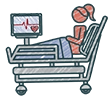Menu

CALL FOR A FREE CONSULTATION
Exceptional Legal Representation Throughout
Long Island and New York, Since 1993.

CALL FOR A FREE CONSULTATION
Exceptional Legal Representation Throughout
Long Island and New York, Since 1993.









Credit Card Debt Relief – Brooklyn and Queens
Rising credit card debt is often the initial indicator of financial struggles, and resolving this debt is crucial in preventing additional financial difficulties.
 For consumers, credit card debt and other unsecured personal loans are the most prevalent types of debt. There are several legal options available for managing credit card debt, including litigation, bankruptcy, and negotiated settlements. The Law Office of Ronald D. Weiss, P.C. represents clients seeking credit card debt relief. We can help eliminate credit card debt using bankruptcy laws, negotiate settlement agreements with some or all creditors through extended negotiations, or, in some cases, challenge credit card liabilities in court.
For consumers, credit card debt and other unsecured personal loans are the most prevalent types of debt. There are several legal options available for managing credit card debt, including litigation, bankruptcy, and negotiated settlements. The Law Office of Ronald D. Weiss, P.C. represents clients seeking credit card debt relief. We can help eliminate credit card debt using bankruptcy laws, negotiate settlement agreements with some or all creditors through extended negotiations, or, in some cases, challenge credit card liabilities in court.

Credit card debt can often be aggressively settled, especially when credit card companies are aware that bankruptcy may be a potential alternative to eliminate the debt entirely.
i) The Need for Credit Card Negotiations – While bankruptcy solutions are usually more comprehensive and certain than negotiated settlements, most clients with credit card debt come to our office seeking the latter. However, there are instances where clients have too many assets or too much income to file for bankruptcy in a way that significantly reduces their debt. In such cases, negotiating a reduced payment might be more beneficial than filing for bankruptcy, especially if the debt is not substantial enough to justify that action.
ii) How Our Office Can Help You Negotiate a Settlement with Your Credit Cards – When clients are either unable or unwilling to file for bankruptcy, our office works with creditors to arrange “lump sum” settlement payment plans. As a bankruptcy firm, creditors know that while we explore bankruptcy options, our preference is to reach a negotiated resolution. We frequently succeed in securing a lump sum settlement that reduces the debt to 33–50% of the original amount. If the client needs to work out a payment schedule, the debt amount is typically lowered in terms of interest and monthly payments.
iii) Our Method of Negotiating with Credit Cards – Many clients approach us with multiple credit cards, requiring negotiations with several creditors. We begin by creating an Excel file that lists all creditors along with relevant contact and loan information. We then systematically reach out to each creditor through written communication and phone calls to negotiate a mutually agreeable settlement. This method allows us to track our progress effectively and keep clients informed.
Experience and the power of legal remedies play a crucial role in these negotiations. The Law Office of Ronald D. Weiss, P.C. regularly represents clients in Brooklyn and New York in credit card negotiations.

A Chapter 7 bankruptcy case can eliminate most or all of a client’s debt, offering a fresh financial start. This legal option is particularly effective for handling significant credit card debt and other unsecured debts like personal loans and medical bills. When a client is unable to meet their financial obligations and is facing creditor harassment, collection actions, and negative credit impacts, a Chapter 7 case can provide substantial relief.
i) Initiating a Chapter 7 Case and the “Automatic Stay” – Filing a bankruptcy petition, along with schedules and statements of financial affairs, initiates the Chapter 7 case. These documents detail the client’s financial situation, including assets, liabilities, income, and expenses. Our office gathers this information through a comprehensive consultation with the client. The filing triggers an “automatic stay,” which immediately halts all collection efforts, wage garnishments, and bank account freezes.
ii) Issue of Potential “Equity” in Assets – The client must attend a creditors’ meeting where a trustee will assess whether any assets with equity could be sold to satisfy creditors’ claims. Most Chapter 7 cases are considered “no asset” cases, meaning there are no significant assets to sell. However, clients may still have assets with minimal equity that don’t affect their case. New York State offers generous exemptions, such as a homestead exemption of up to $150,000 for primary residences.
iii) Issue of “Avoidable Transfers” – Certain transfers, such as preferential payments to creditors or fraudulent transfers to family members before filing for bankruptcy, may be subject to scrutiny. These can be “avoidable” under bankruptcy law, and our office can help determine if such transactions need to be addressed.
iv) Issue of Income Level – To qualify for Chapter 7 relief, the client’s income must meet specific criteria. If income exceeds the state median, the client must pass a means test, considering allowable expenses. In cases where the income is higher than the median, it’s essential to evaluate whether the client still qualifies based on expenses. If not, the client may need to explore Chapter 13 as an alternative.
v) The Issue of Abusive Debt Accumulation – If significant credit card debt has been accrued just before filing for bankruptcy, creditors may object to the discharge. It’s often advisable to wait a certain period before filing if the client has recently incurred substantial new debt.
vi) Avoiding Judicial Liens Against the Client’s Home – Secured liens, such as mortgages or judgment liens, cannot be discharged in a Chapter 7 case. However, if a lien impedes the client’s ability to utilize their homestead exemption, they can file a motion to avoid the lien.
vii) Concluding a Bankruptcy Case and the Bankruptcy “Discharge” – The goal of Chapter 7 is to receive a “discharge” of the client’s debts, officially forgiving the debt and giving the client a fresh start. However, some debts, such as student loans, taxes, and support obligations, are generally not discharged. Clients can voluntarily reaffirm some debts, but most choose to discharge all unsecured debts.
viii) The Potential Benefits of Chapter 7 and the Role of Our Law Office – Chapter 7 is a popular bankruptcy option for individuals overwhelmed with debt, including credit card debt. The process typically takes four months, offering quick relief from overwhelming debt. However, a bankruptcy attorney must assess the client’s financial situation to identify any complicating factors, such as substantial assets or income, avoidable transfers, or abusive debt accumulation.
Chapter 7 cases can provide effective debt relief, especially for excessive credit card debt. Given the complexity of Chapter 7 cases, it is crucial to have legal representation to ensure the process runs smoothly. The Law Office of Ronald D. Weiss, P.C. offers guidance on whether Chapter 7 bankruptcy can help you resolve your credit card debt. We frequently handle Chapter 7 cases for Brooklyn and New York clients seeking relief from overwhelming credit card debt.

Litigation defense allows defendants to challenge alleged credit card debt and assert their legal rights through the court system. Many clients of Ronald D. Weiss, P.C. face the prospect of litigation or collection actions from creditors, most often related to credit card debt. One option for a defendant facing contested litigation, especially when large sums are involved, is to prepare a defense. Our firm can assist clients in responding to a lawsuit’s summons and complaint, which must be done within 20 to 30 days of receiving it. This response is one of the key documents filed in a lawsuit.
A defense can also include responses to motions for summary judgment and, if necessary, motions to dismiss. By defending the lawsuit, the client can raise any defenses against the way the lawsuit was initiated. This strategy can extend the case’s timeline and keep the client and our firm informed about its progress. In some cases, the client may have a strong defense, which could result in the dismissal of the lawsuit. Our defenses focus on issues such as improper service, the validity and relevance of the loan documentation, the clarity of the loan terms, the suitability of the credit card fee schedule, interest rates, and the loan amount.
To support potential defenses and gather more information about the alleged debt, our firm frequently engages in discovery requests. The client can challenge the way the collection action was initiated and/or how the credit card debt was extended by defending against the collection efforts.
Litigation defense is one of the strategies employed by The Law Office of Ronald D. Weiss, P.C. to dispute credit card debt obligations and/or create opportunities for clients to negotiate with their creditors. Our firm regularly defends clients in court against such claims.

When seeking relief from credit card debt and other unsecured obligations, the client’s success largely depends on the skill of the attorney defending them. Since 1993, we have helped thousands of residents in Brooklyn and Queens achieve debt relief from credit card and other unsecured debts. Many of our clients have been able to permanently eliminate their unsecured debt and regain their financial stability with our support.
For those dealing with unsecured debt, it’s important to carefully evaluate all legal options, including litigation defense, bankruptcy, and/or negotiated settlements. Let us help you protect your home with our knowledgeable, affordable services.
Consultations are free, and the advice could be invaluable.
Call us at (631) 250-4120 or email weiss@ny-bankruptcy.com to schedule a free appointment and explore your credit card relief options in detail.
MONDAY – FRIDAY -8.30 AM – 8.30 PM